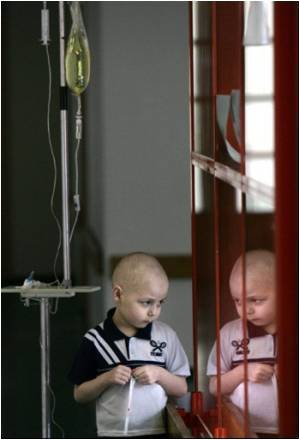According to data, language barriers and the immigration status of caregivers appear to impact the care of Hispanic children with cancer.

Fluchel and his colleagues conducted a study among the primary caregivers of pediatric patients with cancer who were being treated at the University of Utah. Forty-six participants completed Spanish surveys and 323 completed English surveys. Caregivers evaluated various aspects of the child's care, such as how soon after recognizing a symptom they sought care, how satisfied they were with the care, and whether the child was in a clinical trial. The survey also assessed financial, emotional and language barriers to the child's care.
More than 65 percent of the Spanish-speaking respondents, defined as any caregiver who reported Spanish as their primary language, reported problems with their ability to speak English. Seventy percent of Spanish-speaking respondents reported that at least one member of their household had "undocumented" legal status. Thirteen percent reported avoiding or delaying care due to their immigration status.
When asked whether the child was enrolled in a clinical trial, 70 percent of Spanish-speaking caregivers and 40 percent of English-speaking caregivers reported that the child was enrolled in a clinical trial. However, when the researchers verified this information, they found that 32 percent of the Spanish-speaking and 12 percent of the English-speaking caregivers were incorrect about the child's enrollment. Researchers interpreted these findings as the caregivers not fully understanding the informed consent process.
More Spanish-speaking caregivers reported feeling that the potential side effects of therapy were not explained well compared with English speakers. However, Spanish-speaking participants were more satisfied with their child's overall care.
Among Spanish-speaking participants, 37 percent reported feeling not fully understood by the oncology staff, and 22 percent reported that they had falsely claimed understanding the oncology staff because they were embarrassed that they did not speak English. Eleven percent reported being uncomfortable asking for an interpreter, and 33 percent felt that their child would have received better care if English was their first language.
Advertisement
Source-Eurekalert














